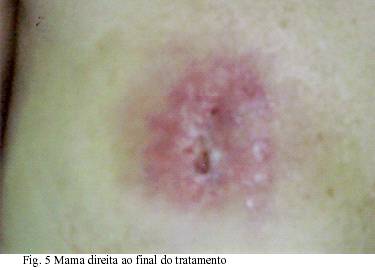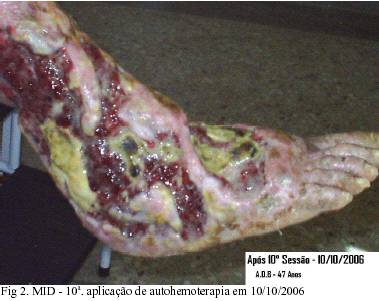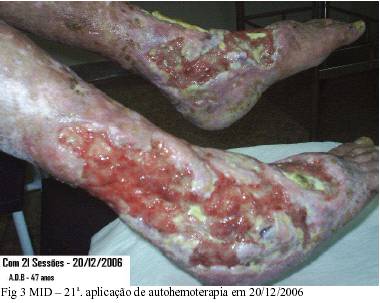http://www.esenfc.pt/rr/admin/conteudos/downloadArtigo.php?id_ficheiro=261&codigo=
Última Edição da Revista Referência - II Série nº9 Março de 2009
REFERENCIA of Coimbra University in Portugal
Treatment of scleroderma autoimmune disease using autohaemotherapy: a clinical case study
Telma Geovanini* Manoel Mozart Corrêa Norberto**
In this exploratory qualitative descriptive study, we present the case of patient ADB who was aged 48 years, white, lived at home and was diagnosed with auto-immune scleroderma; she had extensive wounds with prominent necrosis on the right breast and on the legs below the knees. Our purpose is to demonstrate the effectiveness of autohaemotherapy in treating wounds and skin injuries, aiming to contribute to clinical evidence in the practical area of Complementary Nursing. Autohaemotherapy is a controversial but successful method of treatment used in particular in European countries, and is the auto-stimulation of the immunologic system through withdrawal of a certain venous volume of blood from the patient concerned and rapid administration of exactly the volume of blood by the muscular route, without adding anything further. This simple technique stimulates an increase in the number of macrophages, which is especially indicated in autoimmune illnesses (Moura, 2006). The nursing treatment and medical follow-up were carried out through domiciliary visits to the patient, and followed a protocol which included previous evaluation of the venous drainage and systematic and on-going photographic recording of the wounds. The patient had only autohaemotherapy during a 4-month period, and the wounds were cleaned with magnesium isotonic chloride solution 10%. As result of this treatment, we saw a marked improvement in the clinical picture and the lesions, with granulation of 70% of the areas affected in the lower limbs and healing of the breast wounds, confirmed by the photographic evidence.
Keywords: autohemotherapy; systemic scleroderma, autoimmune diseases, complementary therapies.





Email: mail@instituteofscience.com